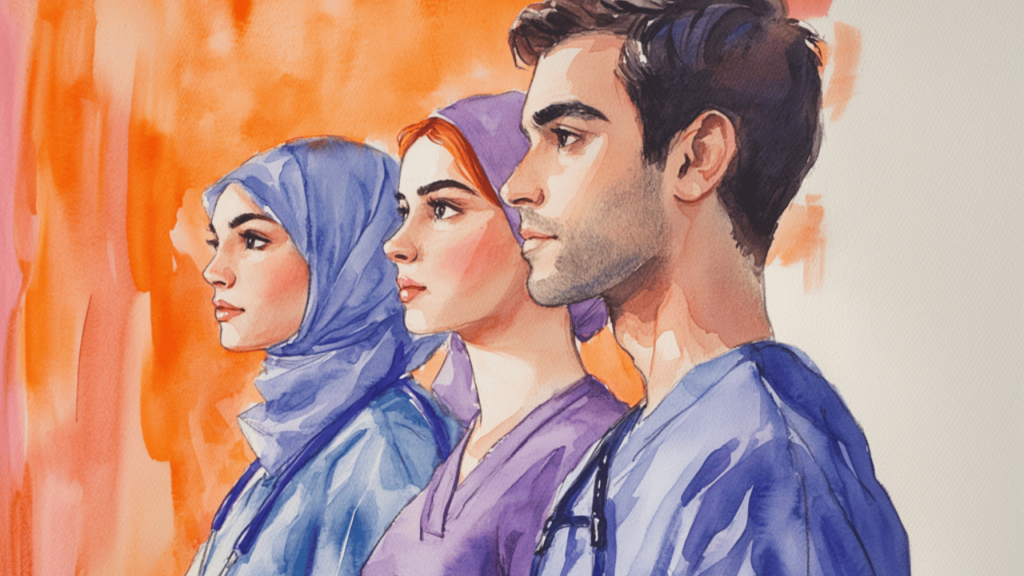During her enrollment in a nursing training institute (IFSI), Houyam is informed that her admission is conditional on removing her headscarf within the institute, during theoretical training and practical work, in application of the principle of secularism.
What does the law say?
- Religious freedom is a principle enshrined in French constitutional law as well as international and European law.
- The LAW No. 2004-228 of March 15, 2004 framing, in application of the principle of secularism, the wearing of signs or attire manifesting a religious affiliation is only applicable in public schools, middle schools, and high schools.
Higher education, private or public, such as IFSI, is not concerned by this law which targets students enrolled in public schools (kindergarten, primary), middle schools and high schools, as well as students in preparatory classes and BTS programs whose education is provided in a public high school.
Consequently, the wearing of religious signs and attire is in principle authorized, provided that it does not interfere with teaching activities, public order, or rules of safety and hygiene.
The Council of State (CE 28 July 2017, No. 390740) has ruled on the status of nursing students in IFSI by distinguishing their places of activity.
It has been recognized in particular that in higher education paramedical training institutes, no obligation of neutrality applies.
- Students who follow theoretical and practical courses within paramedical training institutes have the status of public service users. They are free to express their religious beliefs, provided that they do not disrupt the conduct of teaching activities and the normal functioning of the public service.
- When nursing students carry out an internship in a health establishment charged with a public service mission, they must respect the obligations imposed on public hospital service agents, including the duty of neutrality.
- When nursing students carry out their internship in a private company not managing a public service, they must respect, if applicable, the provisions of the internal regulations of this company that set the conditions under which its agents can express their religious beliefs.
Therefore, in an IFSI, the freedom to manifest one’s religion or philosophical convictions in public, or in private, is guaranteed. Indeed, no legislative provision prohibits or restricts the wearing of signs of religious affiliation. Internal regulations that would prohibit the wearing of religious signs in all circumstances are illegal and violate the principle of religious freedom.
What should I do?
In case of refusal of enrollment or access to the premises of the establishment due to the wearing of a religious sign:
- Demand a written and motivated notification of the refusal you are facing.
- Demand that you be provided with the regulations invoked.
- The internal regulations of an IFSI that would prohibit the wearing of religious signs are discriminatory and should be denounced as such in order to be modified by the administration.
- File an appeal with the registration service, including notably the decision of the Council of State (CE 28 July 2017, No. 390740).
- Get in contact with the head of the establishment to inform them of the illegality of this refusal.
- Contact the Rights Defender to report discrimination.
- Contact Equitas who will provide you with support and legal assistance.
References to applicable texts:
- Principle of religious freedom: Art.10 of the Declaration of the Rights of Man and of the Citizen of 1789; Art. 9 of the Convention for the Protection of Human Rights and Fundamental Freedoms; Art. L. 141-6 and L. 811-1 of the Education Code.
- Discrimination: Art. 1, 3, 4, and 5 of the 1960 Convention against Discrimination in Education; articles 225-1 and 225-2 of the Penal Code.
- CE 28 July 2017, No. 390740, No. 39074 and 390742; Council of State, 26 July 1996, University of Lille 2, request No. 170106.




